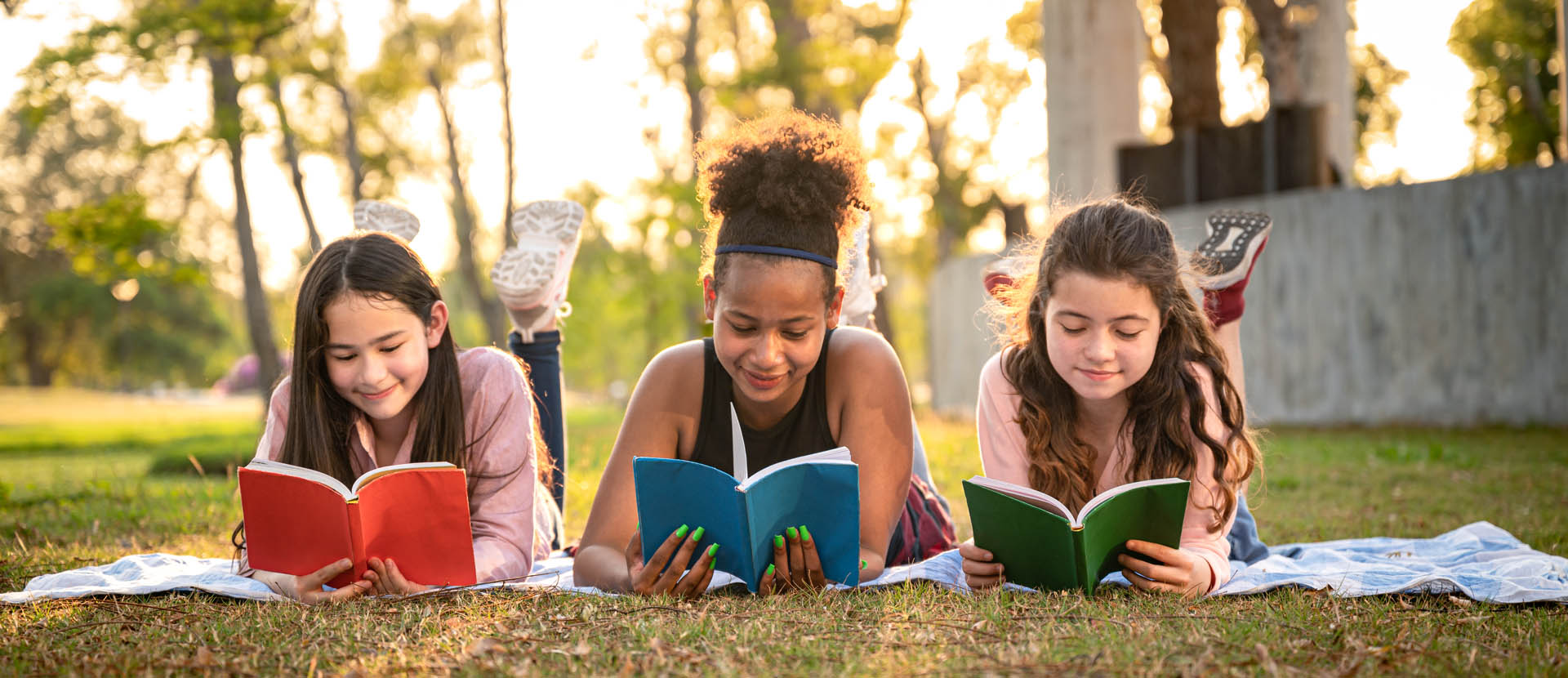Why Summer Reading is Important and How to Make it Fun

“So, what have you been reading this summer that’s been interesting?” I ask my unsuspecting 12-year-old nephew sitting in the passenger seat of the car. I often start sentences with, “I just read an article that said…” and my children start to roll their pre-teen eyes. But in the car, my nephew has entered my lair and my younger children perk up from the back seat waiting for his answer. No matter who gets in my car this summer, what that person is reading (or wants to read) is very likely going to be one of the major points of conversation. Over the years, I have found that it works especially well with primary school children to get the conversation going.
I LOVE reading, but I know that not all people do—especially in their formative years where there are many more distractions for students both online and outside. And that is precisely why I ask this question as I try to make conversation with whichever young person happens to end up in my passenger seat. Reading is important, if not essential, to growing our minds both literally and figuratively. As summer approaches, engaging in a brief conversation about books with your child may help you learn a lot more than you thought you knew.
Having made an effort this past year to become more aware and mindful of how much time can be spent online for teens, and how it can negatively impact their eyesight, lead to screen addiction, and create a personality most people don’t want to spend time with, now is a good time to set family goals around reading.
As the writer and teacher, John Martin, founder of Boys Read notes, reading “is a skill that has atrophy. The effect is cumulative: the more summers without reading, the wider the gap each year.”
No matter what a student’s interests, reading will fill in the gaps, expand their vocabulary, and perhaps even help with the navigation of these formative years of school, when their emotions are on a perpetual rollercoaster.
What Should Your Child be Reading?
Professor Patrick Sullivan of Manchester Community College in CT, a leading researcher and writer on reading, suggests that: “…choosing what you are interested in is a great way to start. You can read whatever books or articles you want.” For him, the act of reading is more important than the type of reading.
Here are a few ways to help your child look back over their summer and be proud of their accomplishments in reading:
- Register your tween/teen for a book club. The National Teen Book Club is a virtual book club for children aged 11-19, for example. Scholastic also offers various book clubs. Often, these kinds of clubs offer wonderful rewards and great deals. You can also check with your local library!
- Engage your child in holiday planning. Any reading is worthwhile, so if they need to research hotels, fun activities, historical sites, and restaurants that they’d enjoy, try giving them the reigns to help with some research and planning.
- Make a bucket list with your child, listing any activities, events, or destinations you’d like to do this summer closer to home. Then look in your library and online for books that may overlap with those ideas.
- Involve your child in some cooking this summer. Hand them some recipe books or suggestions and let them find some things they’d like to learn to cook. Reading recipes counts as reading and might be a good starting point with a reluctant reader.
- Pick up a variety of books to have on hand as soon as school is wrapping up. You can check out a local book sale, charity shop, online, and of course, your library.
- Keep short articles, magazines, small paperbacks or even brochures in your car or downloaded on your phone or Kindle for those in between moments in the car.
- Spend time researching titles with your child and on your own, looking at websites like Amazon, Goodreads, and Love Reading.
- Challenge your child to a read-off or get your whole family involved: set a goal individually and as partners with your child to either read the same book(s) or create separate book lists with both fiction and non-fiction titles.
- Create a tried and tested BINGO chart. Draw a blank board with 10-12 squares (or look on Pinterest for ideas) that you fill in with your child including different genres that pertain to their interests e.g.: mystery novel, sports article from newspaper, book about a place you’ve visited, a memoir, your favourite book when you were your child’s age, etc. Offering incentives for a completed chart may not be a bad idea either…
- Download audio books from Audible.com or your local library (for free!) for road trips or just for even short rides to and from daily summer activities. While not technically reading, listening to books can open the world of literature up to more reluctant readers.
- Most importantly, let your child see YOU reading. Helping your tween/teen establish a love of reading might reignite or inspire you to read more.
Camping, sleepovers, car rides, lazy days on the beach, by a river or a pool —wherever your child is this summer, make sure they’ve packed something to read! And whoever ends up in your passenger seat, don’t hesitate to ask, “What are you reading this summer?” You just might get more than a teenage grunt or groan…





